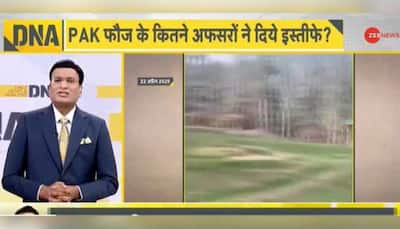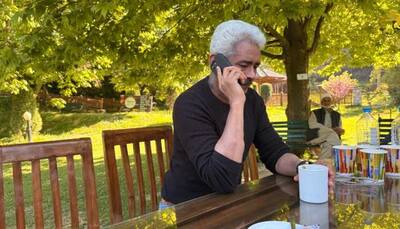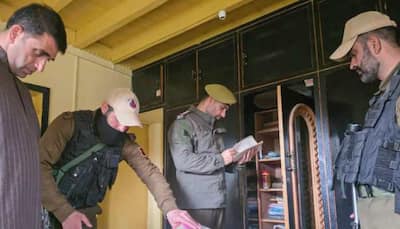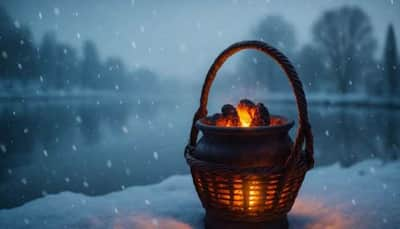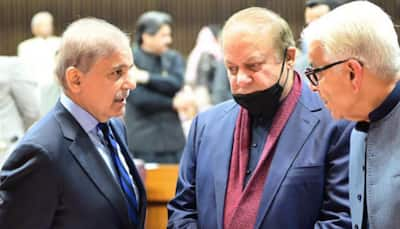In this poignant open letter, Savita Ghai revisits memories of Kashmir—its warmth, beauty, and indomitable spirit—reflecting on the recent tragedy in Pahalgam, while reaffirming faith in the timeless strength of Kashmiriyat.
Dear Kashmir,
I don’t know how to write this without my hands shaking.
You were never just a place I lived in, you were the story itself. Not a fleeting postcard or a passing chapter, but a living, breathing part of my life.
For over a year, I drank your tea, shared your bread, and learnt to hear the music in your silence. You were scent, soul, and snow. You were warmth in a cold too deep for language.
For over a year, you were more than home to me – you were a place where I experienced the greatest joys of life and yes, at times plumbed into some depths of despair too ….
You were a dream I could walk through. You were the ‘rabab’ I could play on. You were poetry I could touch ….
You taught me to listen to silence and find meaning in rituals – gliding on pure snowflakes, twirling and swaying as the golden chinar leaves softly fell, in shikara rides on the Dal, in paying obeisance at Shankaracharyaji, in casting a humbled eye over the magnificence of the Jhelum and the crystal clear waters of the Lidder rivers.
I remember the sacred crackle of isband seeds in the fire, full of belief, warding off the unseen; rising like a prayer into the air, leaving behind that sharp, thick, sacred smoke that felt like protection, like a mother’s hand brushing over the forehead.
I remember winter mornings when the chill bit through every layer, but inside homes, people clutched their kangris like tiny hearths of hope, glowing silently and the smoke curling softly beneath pherans. It was always more than warmth, it was a gesture, an offering. A reminder that even in the harshest cold, there was care, there was light.
I remember the warmth of homes, the soft clatter of tea cups, the hush that falls before snowfall.
It wasn’t just sustenance.
It was belonging.
I remember the early morning scents of bread baking. The tandoor alive before dawn, the queue of people outside for tsot, kulcha, or a delicate baqerkhani. Bread wasn’t just food – it was rhythm, community, love in edible form.
I walked the green pastures of the valleys and it felt like wandering through a dream someone had filmed and left behind. The silence there reverberated like a prayer. Horses grazing in sunlit valleys, rivers racing the wind, pine trees stood like sentinels, mountains standing still like they were holding their breath. It was all too beautiful to be real until it was, until I touched it, and knew it would never leave me.
The memory of Aishmuqam holds me spellbound even today.
I remember the climb up to the dargah, steep, winding, humbling. The air changed up there. It was electric. Not quiet holiness but raw, roaring devotion. You don’t leave Aishmuqam unchanged. You don’t forget the power that lives and pervades all there.
So when I heard of the dastardly massacre in Pahalgam, it was as though all these sacred places, these soft, strong pieces of you, shuddered inside me. My heart broke not only for the lives lost but for the silence that would follow in places that once rang with laughter, song, and prayer.
How can the land of Shaivism, sufi saints and snow-fed rivers be soaked in such grief?
How do I reconcile that memory with the pain of now?
But I remember those ancient yet proud, defiant ruins of Martand, stone that survived everything like a spiritual heartbeat anchoring all the beauty and pain it had witnessed. I could feel the weight of centuries in the stone, and the pull of belief in every step leading to it even as chaos rages around this magnificence. But it sure seemed as these very ‘stones’ were reaching skyward with a kind of fierce grace, watching over time as it broke and reformed all around them.
And from near those stones, the sacred path begins, the Amarnath Yatra. I watched pilgrims walk with cracked feet and full hearts, singing ‘Har Har Mahadev’, holding onto nothing but faith. That cave, that ice, that silence, so many seek it, and somehow it gives back more than it takes.
And so when I heard about the massacre in Pahalgam, my heart caved in.
This was a place where people came seeking the sacred. A place where faith walked through snow and struggle. Where beauty lived in song and devotion and wind. I don’t know how to hold this grief. But I do know this: your spirit, Kashmir, is stronger than your sorrow.
You are more than your wounds, Kashmir. You are what endures through them. In this moment, my belief was not a boundary – it was a bridge. That is Kashmiriyat. Not a slogan but … a spirit.
The drums will rise again at Aishmuqam. The pilgrims will return to the chants of ‘Har Har Mahadev’. The bread will bake before dawn. And the kangri will continue to glow.
This land has known saints, snow, and suffering, and still, it believes. So I will too.
May the blessings of all who have walked your sacred paths guide you toward healing. May your Kashmiriyat outlast every wound.
And I carry you with me, always.
With all my heart,
Savita Ghai
(Savita Ghai is Zonal president, Army Women’s Welfare Association (AWWA). The views expressed in the article are her own.)
Stay informed on all the , real-time updates, and follow all the important headlines in and on Zee News.


